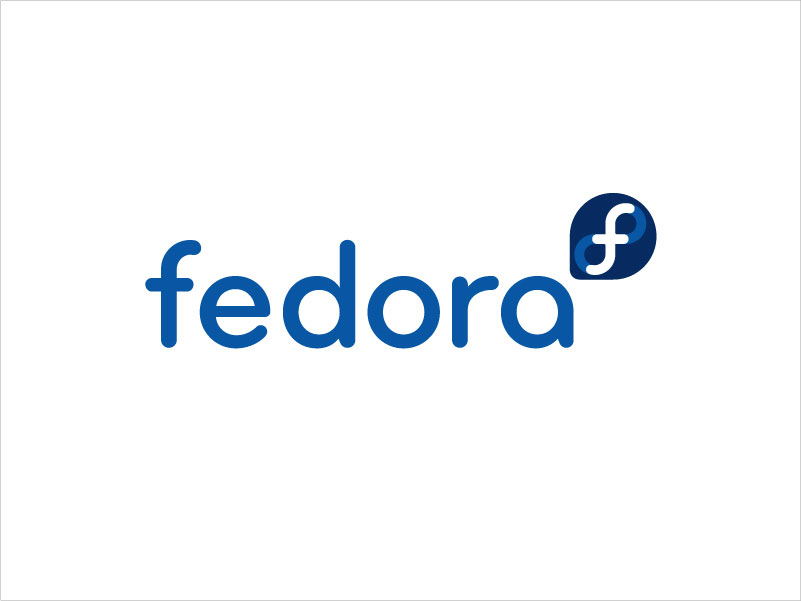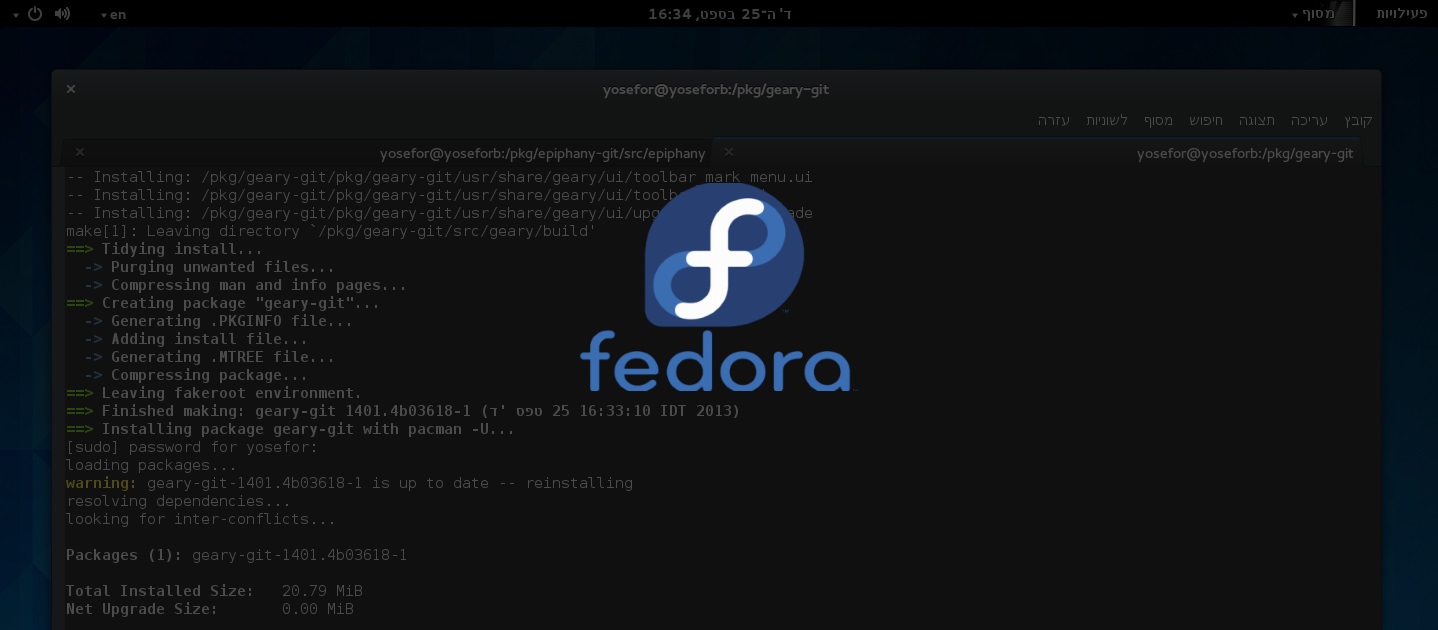Fedora Linux and its applications
Published

Fedora Linux is a free and open source Linux distribution developed by the Fedora community in collaboration with Red Hat. It is one of the most well-known Linux distributions and is considered by many to be one of the most stable and reliable distributions.
Fedora is known for its rapid development and willingness to integrate the latest technologies into its distribution. The distribution is updated every six months and offers both a desktop and server version.
Fedora includes many of the latest technologies and software packages, including the GNOME desktop, the latest versions of GCC, Python and Ruby, and many other development and productivity tools. It is also known for its security features, including SELinux and numerous encryption options.
Fedora is a very popular choice for developers and system administrators who need a stable, modern, and extensible Linux distribution.
What is Fedora Linux used for?

Those : fedoraproject.org
Fedora Linux is used for a variety of applications including desktop computing, server hosting, development and programming, as well as scientific and academic purposes.
As a desktop operating system, Fedora Linux provides a fast, stable and user-friendly environment for everyday use. It contains a variety of applications including productivity tools, multimedia applications and games.
As a server operating system, Fedora Linux provides a stable, secure, and high-performance platform for delivering web, database, email, and other server applications. It also includes many tools and utilities for system administrators to configure and manage servers.
As a development and programming platform, Fedora Linux offers a wide range of programming languages and tools, including C, C++, Java, Python, Ruby, and others. It also includes many development environments and libraries to facilitate the development of applications and software.
For scientific and academic purposes, Fedora Linux offers a wide range of applications and tools for calculations, simulations, data analysis and visualization, as well as research and education.
Overall, Fedora Linux is used by a wide range of users and applications that require a fast, stable, secure, and powerful Linux distribution.
What is Fedora Linux not suitable for?
Although fedora Linux is a powerful and flexible Linux distribution, there are some limitations to its use, especially in certain specialized areas. Here are some examples of why Fedora Linux is less suitable:
- Production Environments: Fedora Linux is typically not recommended for production environments because it does not provide long-term support and has fast-paced release cycles. Instead, other distributions such as Red Hat Enterprise Linux or CentOS that provide long-term support and stability are recommended.
- Enterprise environments: Fedora Linux may not be the best choice for organizations that have specific software needs that are not supported by Fedora Linux or for which there are no packages. Instead, other distributions such as Ubuntu or SUSE Linux Enterprise, which are specifically designed for use in corporate environments, are recommended.
- Legacy Hardware: Fedora Linux is typically recommended for modern hardware as there may be issues with older hardware for which drivers are not available. In such cases, other distributions such as Debian or Slackware may be more suitable.
- Beginners: Fedora Linux has a steep learning curve, especially for users who have little or no experience with Linux. Instead, other distributions such as Ubuntu or Linux Mint, which are known for their user-friendliness and ease of use, are recommended.
It is important to note that these limitations do not mean that Fedora Linux is not at all suitable for these purposes, but rather that it may not be the best choice, especially if there are specific requirements.
Where can you find Fedora Linux?

Those : bleepingcomputer.com
Fedora Linux can be downloaded on the official website of the distribution, located at the address getfedora.org is reachable. On this website you will find different versions of Fedora Linux, including the desktop and server editions, as well as the so-called "spins", which contain special editions of Fedora for specific use cases, such as gaming or design.
The website also contains instructions for downloading, installing and using Fedora Linux, as well as detailed documentation that can help users configure and use Fedora Linux.
In addition, there is an active Fedora community, featured on the official website, which operates numerous forums, wikis, and mailing lists where users can ask questions, find answers, and share their experiences with Fedora Linux. The community also provides support for Fedora Linux development and helps ensure the distribution is continually improved and updated.
What weaknesses does Fedora Linux have?
Like any other software, Fedora Linux also has some weaknesses that users should be aware of. Here are some of the weaknesses of Fedora Linux:
- Short release cycles: Fedora Linux has short release cycles of around six months, meaning some users may find it difficult to keep up with the latest versions and make necessary upgrades.
- Limited Support: Fedora Linux is community supported and does not have long-term support like some other Linux distributions. This means that older versions of Fedora may no longer receive security updates and may not be suitable for use in production environments.
- Limited Package Availability: Although Fedora Linux includes many software packages, there are some packages that may not be available in the official repositories. Users may need to add additional package sources or manually install software packages to meet their needs.
- Not always stable: Because Fedora Linux often includes the latest versions of software packages and technologies, it may occasionally be unstable or exhibit unexpected behavior.
- Learning Curve: Fedora Linux can present a learning curve for users with limited Linux experience as it may be difficult to find or execute certain settings or configurations.
Despite these weaknesses, Fedora Linux is a powerful, stable and reliable Linux distribution suitable for many applications.
How expensive is Fedora Linux?

Those : linuxways.net
Fedora Linux is free and open source software. It can be downloaded from the official website and used at no cost. There are no license fees or restrictions on using Fedora Linux, whether for personal or business use.
The Fedora Project is financed through donations and the support of companies and organizations that want to support the project. These donations will be used to support the development, testing, and deployment of Fedora Linux.
Therefore, Fedora Linux is an excellent option for users who need a powerful, stable and secure operating system without having to pay for it.
Which companies use Fedora?
Fedora Linux is used by a wide range of companies and organizations, including both large and small businesses. Some of the companies using Fedora Linux are:
- Red Hat - Red Hat is a leading provider of open source software and Fedora is a community project sponsored by Red Hat.
- IBM - IBM uses Fedora Linux for internal purposes and also provides support for Fedora Linux to its customers.
- Dell - Dell is a major supporter of Linux and offers Fedora Linux as an option on many of its computers and workstations.
- Intel - Intel uses Fedora Linux to develop drivers and other software components for its hardware.
- Mozilla - Mozilla, the developer of the Firefox browser, uses Fedora Linux for development and testing of Firefox and other projects.
- Siemens - Siemens uses Fedora Linux for various internal purposes and is also a major supporter of the open source community.
This list is not exhaustive and there are many more companies that use Fedora Linux for their business and development needs. Fedora Linux is also used by many individuals and developers around the world.








